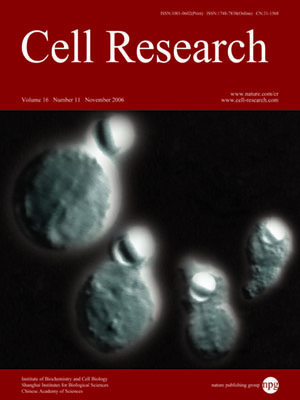
Volume 16, No 11, Nov 2006
ISSN: 1001-0602
EISSN: 1748-7838 2018
impact factor 17.848*
(Clarivate Analytics, 2019)
Volume 16 Issue 11, November 2006: 895-901
ORIGINAL ARTICLES
Hsp90 inhibition results in autophagy-mediated proteasome-independent degradation of IkB kinase (IKK)
Guoliang Qing, Pengrong Yan, Gutian Xiao
1Department of Cell Biology and Neuroscience, Rutgers, The State University of New Jersey, 604 Allison Road, Piscataway, NJ 08854, USA
Correspondence: Gutian Xiao(xiao@biology.rutgers.edu)
Autophagic and proteasomal proteolysis are two major pathways for degradation of cellular constituents. Current models suggest that autophagy is responsible for the nonselective bulk degradation of long-lived proteins and organelles while the proteasome specifically degrades short-lived proteins including misfolded proteins caused by the absence of Hsp90 function. Here, we show that the IkB kinase (IKK), an essential activator of NF-kB, is selectively degraded by autophagy when Hsp90 is inhibited by geldanamycin (GA), a specific Hsp90 inhibitor showing highly effective anti-tumor activity. We find that in this case inactivation of ubiquitination or proteasome fails to block IKK degradation. However, inhibition of autophagy by an autophagy inhibitor or knockout of Atg5, a key component of the autophagy pathway, significantly rescues IKK from GA-induced degradation. These findings provide the first evidence that an Hsp90 client may be degraded by a mechanism different from the proteasome pathway and establish a molecular link among Hsp90, NF-kB and autophagy
Cell Research (2006) 16:895-901. doi:10.1038/sj.cr.7310109; published online 7 November 2006
FULL TEXT | PDF
Browse 2223


